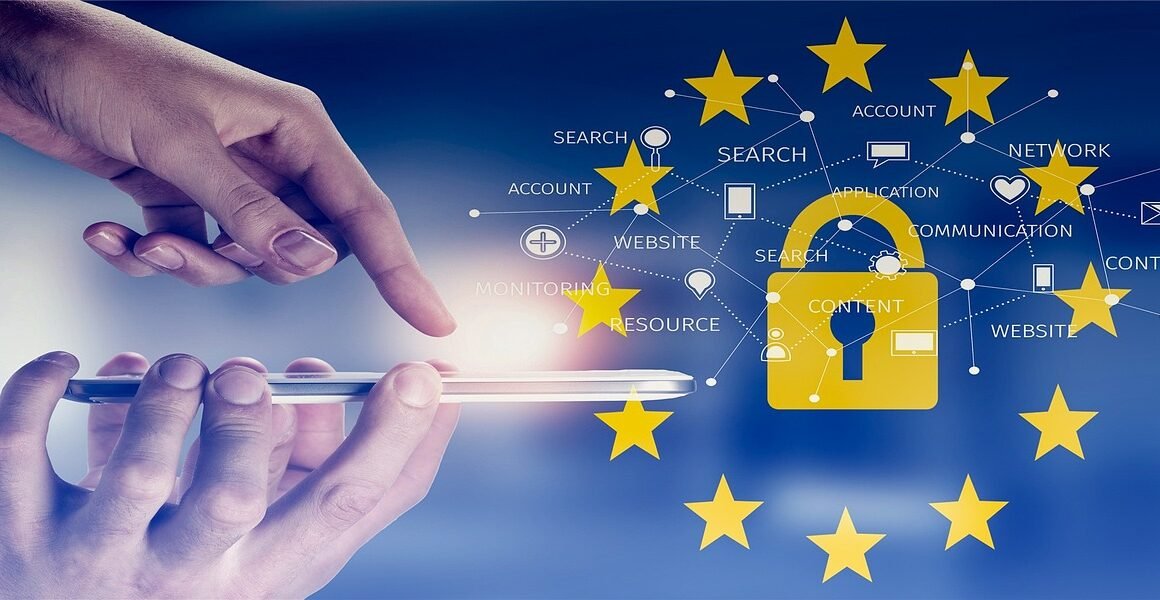Data privacy is no longer a niche concern relegated to the IT department. It’s a fundamental human right, a cornerstone of trust in the digital age, and a critical business imperative. From targeted advertising to healthcare records, our personal information is constantly being collected, analyzed, and shared. Understanding data privacy, its implications, and how to protect it is crucial for individuals and organizations alike. This article will delve into the multifaceted world of data privacy, offering actionable insights and practical guidance to navigate this complex landscape.
Understanding Data Privacy: What Is It?
Data privacy, often used interchangeably with information privacy, refers to the right of individuals to control how their personal data is collected, used, and shared. It’s about ensuring transparency, accountability, and choice in the digital realm. At its core, data privacy acknowledges that individuals should have agency over their information and be empowered to make informed decisions about its use.
What Constitutes Personal Data?
Defining personal data is the first step to understanding data privacy. It extends beyond obvious identifiers like names and addresses to encompass any information that can be used, directly or indirectly, to identify an individual. This includes:
- Personally Identifiable Information (PII): This is the most direct type and includes names, addresses, email addresses, phone numbers, social security numbers, driver’s license numbers, and passport numbers.
- Sensitive Personal Information: This category includes data considered highly private, such as health information (medical records, insurance information), financial information (bank account details, credit card numbers), genetic information, and biometric data (fingerprints, facial recognition data).
- Online Identifiers: These are pieces of information collected when you browse the internet, such as IP addresses, cookies, device IDs, location data, and browsing history. These seemingly innocuous details can be combined to create detailed profiles.
- Behavioral Data: This includes information about your online activity, such as websites visited, searches performed, purchases made, and content consumed. This data is often used for targeted advertising and personalized recommendations.
Why Is Data Privacy Important?
Data privacy is critical for several reasons:
- Protecting Individual Rights: It safeguards fundamental human rights and freedoms, ensuring that individuals are not subjected to unwarranted surveillance or discrimination.
- Building Trust: Strong data privacy practices foster trust between individuals and organizations, encouraging them to share information and engage in online activities.
- Preventing Identity Theft and Fraud: Protecting personal data reduces the risk of identity theft, financial fraud, and other malicious activities.
- Maintaining Autonomy: Data privacy empowers individuals to control their online presence and make informed decisions about their data.
- Ensuring Fairness and Equality: Robust data privacy regulations can help prevent discriminatory practices based on personal information.
Key Data Privacy Regulations Around the World
Several comprehensive data privacy regulations have emerged globally, setting standards for data protection and individual rights. Understanding these regulations is crucial for organizations operating across borders.
General Data Protection Regulation (GDPR)
The GDPR, implemented in the European Union (EU), is arguably the most influential data privacy regulation worldwide. Key aspects include:
- Scope: Applies to organizations that process personal data of individuals in the EU, regardless of where the organization is located.
- Key Principles: Adherence to principles like lawfulness, fairness, transparency, purpose limitation, data minimization, accuracy, storage limitation, integrity, and confidentiality.
- Individual Rights: Grants individuals several rights, including the right to access, rectify, erase (the right to be forgotten), restrict processing, data portability, and object to processing.
- Consent: Requires explicit and informed consent for data processing.
- Data Breach Notification: Mandates timely notification of data breaches to supervisory authorities and affected individuals.
- Penalties: Significant fines for non-compliance, up to 4% of annual global turnover or €20 million, whichever is higher.
California Consumer Privacy Act (CCPA) / California Privacy Rights Act (CPRA)
The CCPA, amended by the CPRA, gives California residents significant control over their personal information. It includes rights such as:
- Right to Know: Consumers have the right to know what personal information is being collected about them and how it’s being used.
- Right to Delete: Consumers can request that businesses delete their personal information.
- Right to Opt-Out: Consumers can opt-out of the sale of their personal information.
- Right to Non-Discrimination: Businesses cannot discriminate against consumers for exercising their privacy rights.
Other Notable Regulations
Beyond GDPR and CCPA/CPRA, numerous other countries and regions have enacted data privacy regulations, including:
- Personal Information Protection and Electronic Documents Act (PIPEDA) – Canada
- Lei Geral de Proteção de Dados (LGPD) – Brazil
- Privacy Act 1988 – Australia
Staying informed about these regulations and their specific requirements is vital for compliance.
Practical Steps for Protecting Your Data Privacy
Individuals can take several proactive steps to protect their data privacy online and offline.
Strong Passwords and Multi-Factor Authentication (MFA)
- Create strong, unique passwords: Avoid using easily guessable passwords like “password123” or your birthdate. Use a password manager to generate and store complex passwords.
- Enable Multi-Factor Authentication (MFA): MFA adds an extra layer of security by requiring a second form of verification, such as a code sent to your phone, in addition to your password. Enable MFA whenever possible.
Review Privacy Settings and Permissions
- Review privacy settings on social media platforms: Limit the visibility of your posts and personal information to trusted contacts.
- Review app permissions: Be cautious about granting apps access to your contacts, location, camera, and microphone. Revoke unnecessary permissions.
- Use privacy-focused search engines: Consider using search engines like DuckDuckGo that do not track your searches or personalize results based on your browsing history.
Be Mindful of Phishing and Scams
- Be wary of suspicious emails and links: Avoid clicking on links or downloading attachments from unknown senders.
- Verify requests for personal information: Always verify the legitimacy of requests for personal information before providing it, especially through email or phone.
- Use a reputable antivirus and anti-malware software: Keep your software up to date to protect against malware that can steal your personal data.
Protect Your Data Offline
- Shred sensitive documents: Shred documents containing personal information before discarding them.
- Be careful with social engineering: Be aware of social engineering tactics that scammers use to trick you into revealing personal information.
- Monitor your credit report: Regularly check your credit report for signs of identity theft.
Data Privacy Best Practices for Businesses
Organizations have a responsibility to protect the personal data they collect and process. Implementing robust data privacy practices is essential for compliance, building trust, and mitigating risk.
Conduct a Data Privacy Assessment
- Identify data flows: Map out how personal data flows through your organization, from collection to storage to processing to sharing.
- Assess data privacy risks: Identify potential risks to personal data, such as data breaches, unauthorized access, and misuse.
- Implement appropriate security measures: Implement technical and organizational measures to protect personal data, such as encryption, access controls, and data loss prevention (DLP) systems.
Develop a Data Privacy Policy
- Create a clear and comprehensive data privacy policy: Clearly outline how you collect, use, and protect personal data.
- Make the policy easily accessible: Post the policy on your website and make it available to individuals upon request.
- Regularly review and update the policy: Keep the policy up to date to reflect changes in data privacy regulations and your business practices.
Train Employees on Data Privacy
- Provide regular data privacy training: Educate employees on data privacy principles, regulations, and best practices.
- Focus on specific roles and responsibilities: Tailor training to the specific roles and responsibilities of different employees.
- Implement a data breach response plan: Develop a plan for responding to data breaches, including notification procedures and remediation steps.
Implement Data Minimization
- Collect only necessary data: Collect only the personal data that is necessary for the specific purpose for which it is being collected.
- Retain data only as long as necessary: Retain personal data only for as long as it is needed to fulfill the purpose for which it was collected.
- Dispose of data securely: Dispose of personal data securely when it is no longer needed.
The Future of Data Privacy
The landscape of data privacy is constantly evolving, driven by technological advancements, changing societal expectations, and regulatory developments.
Increased Focus on Privacy-Enhancing Technologies (PETs)
- Homomorphic Encryption: This allows computations to be performed on encrypted data without decrypting it first.
- Differential Privacy: This adds noise to data to protect the privacy of individual records while still allowing for statistical analysis.
- Federated Learning: This allows machine learning models to be trained on decentralized data without sharing the data itself.
Growing Importance of Ethical AI
- AI accountability: Ensuring that AI systems are used ethically and responsibly, with transparency and accountability for their decisions.
- Bias mitigation: Identifying and mitigating bias in AI algorithms to prevent discriminatory outcomes.
- Data privacy by design: Incorporating data privacy considerations into the design and development of AI systems from the outset.
Ongoing Regulatory Development
- Emerging data privacy regulations: Expect to see more countries and regions enacting data privacy regulations in the coming years.
- Strengthening enforcement: Supervisory authorities are likely to increase their enforcement efforts, leading to more fines and penalties for non-compliance.
- International cooperation: Increased cooperation between data privacy authorities to address cross-border data flows and enforcement challenges.
Conclusion
Data privacy is a critical issue for individuals and organizations in the digital age. Understanding the principles of data privacy, adhering to relevant regulations, and implementing proactive measures are essential for protecting personal information and building trust. By embracing data privacy as a core value, we can create a more secure, transparent, and equitable digital future for all. Taking control of your digital footprint and ensuring your organization prioritizes data protection are not just best practices, they are responsibilities we all share.



